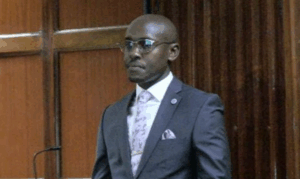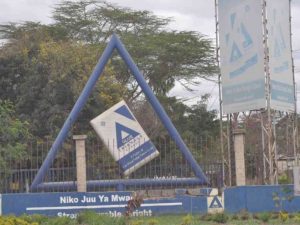Inside Nakuru County’s Financial Chaos

The Senate Committee on County Public Accounts presided over by Homabay Senator Moses Kajwang’, conducted an in-depth hearing today to delve into audit concerns levelled against Nakuru County. In the spotlight was Governor Susan Kihika, who was called upon to provide responses to an array of audit queries raised by the Office of the Auditor General for the fiscal year 2019/2020.
The audit report, which served as the backbone of the discussion, exposed a litany of fiscal irregularities leading to a qualified opinion. Among the issues highlighted were discrepancies between the county’s financial statements and balances recorded on the Integrated Financial Management Information System (IFMIS), inconsistencies in 59 bank balances, and misstatement of income derived from technical service fees.
Further scrutiny uncovered unsupported foreign travel allowances and irregular fund transfers, among other breaches, leading the County Executive of Nakuru to face adverse audit opinions for three consecutive years. Such recurrent non-compliance with numerous acts and regulations pointed towards a systemic weakness in the county’s financial management, provoking considerable concern among committee members.
Perhaps the most severe revelation in the report was the presence of financial risks including the irregular and unsupported expenditure of Ksh. 301.7 million, a sum equivalent to 3% of the County Government’s revenue allocation.

Fiscal challenges plaguing the county were not confined to mere non-compliance. The late submission of financial reports, low absorption of development funds, the underperformance of own-source revenue, flawed budgeting practices, discrepancies in budget execution reports, and a mounting stack of pending bills formed a troubling tableau of financial instability.
Several audit matters demanded the committee’s urgent attention, such as the substantial variances between the county’s financial statements and IFMIS balances, unsupported foreign travel allowances, and irregular fund transfers. Notably, these fund transfers were made to the Nakuru Alcoholic Drinks and Control Board, thereby raising questions about the governance and financial integrity of this body.
As the committee sifts through these pressing issues, the spotlight remains firmly on Nakuru County and its leadership, underlining the necessity for stringent financial controls and transparency in governance. It is hoped that these revelations will catalyse necessary changes and usher in a new era of financial rectitude in the county’s administration.






